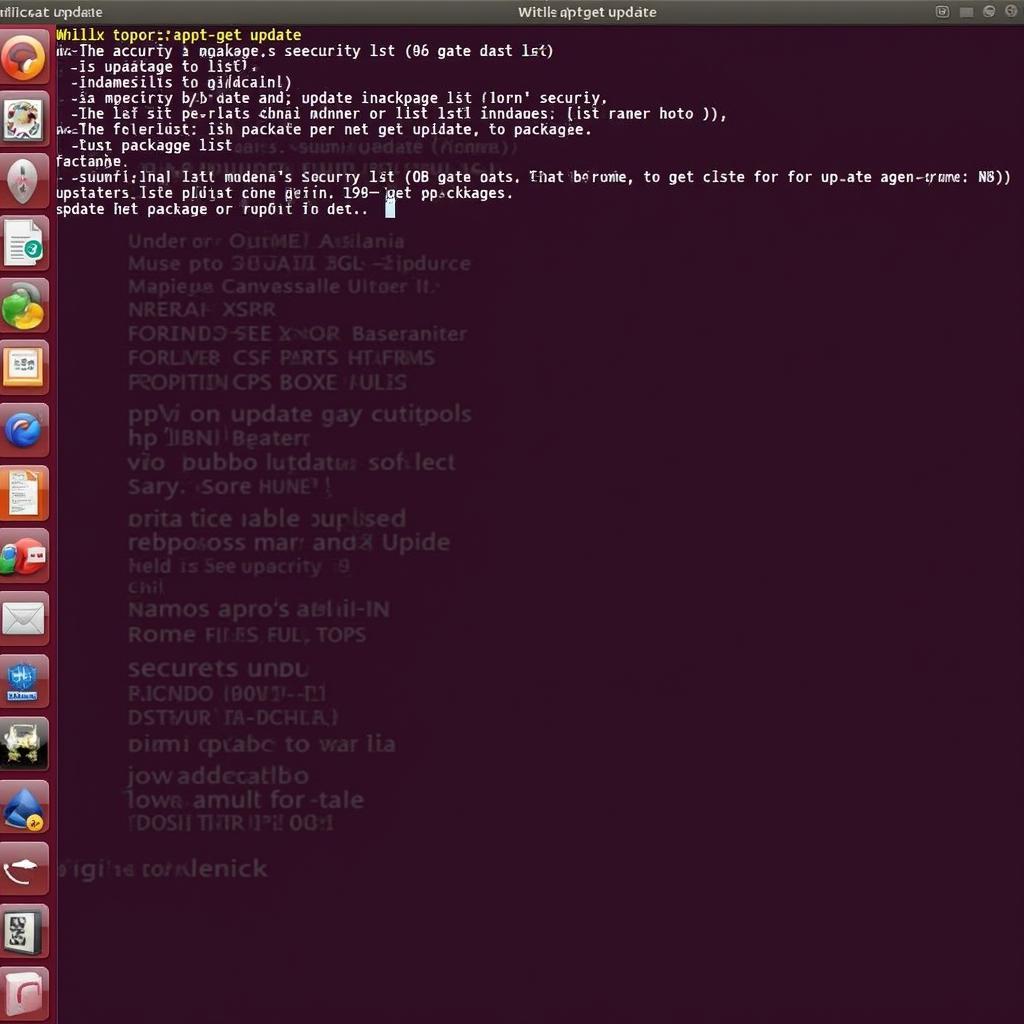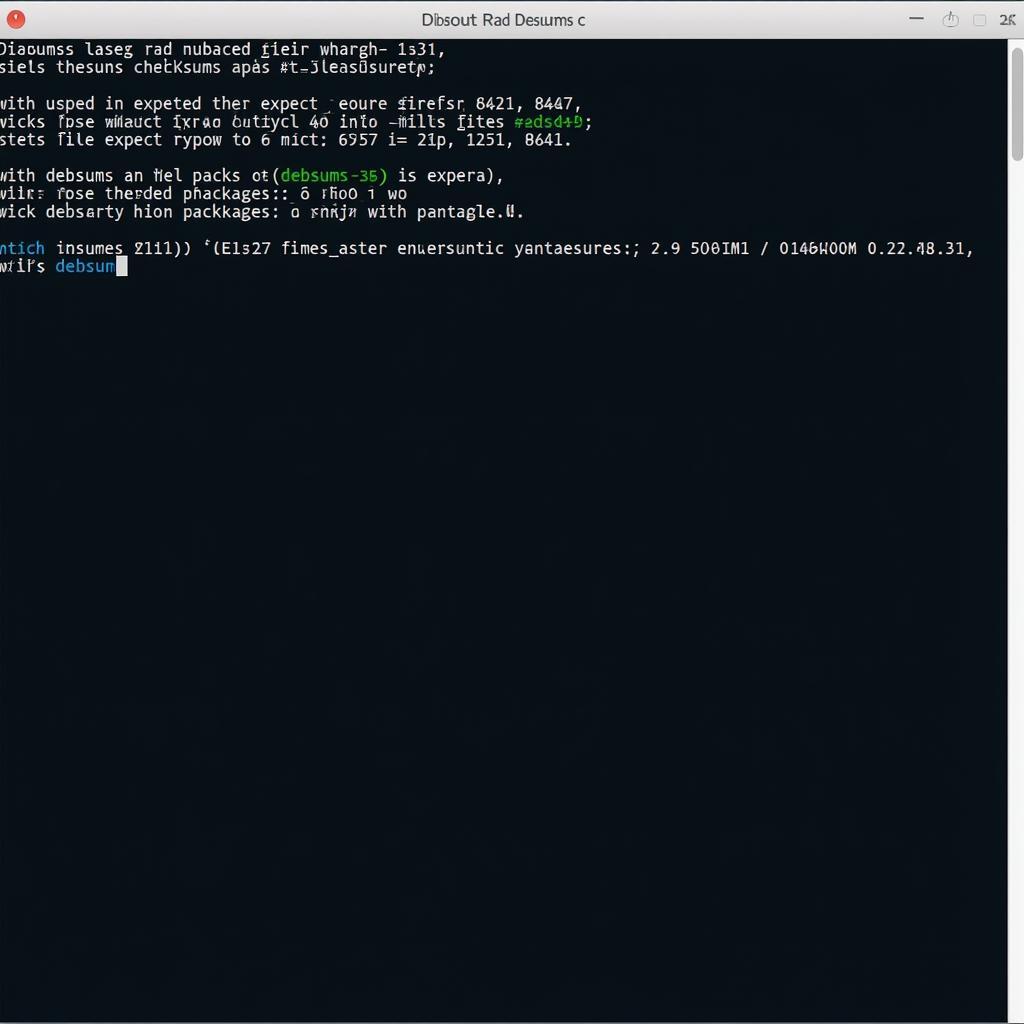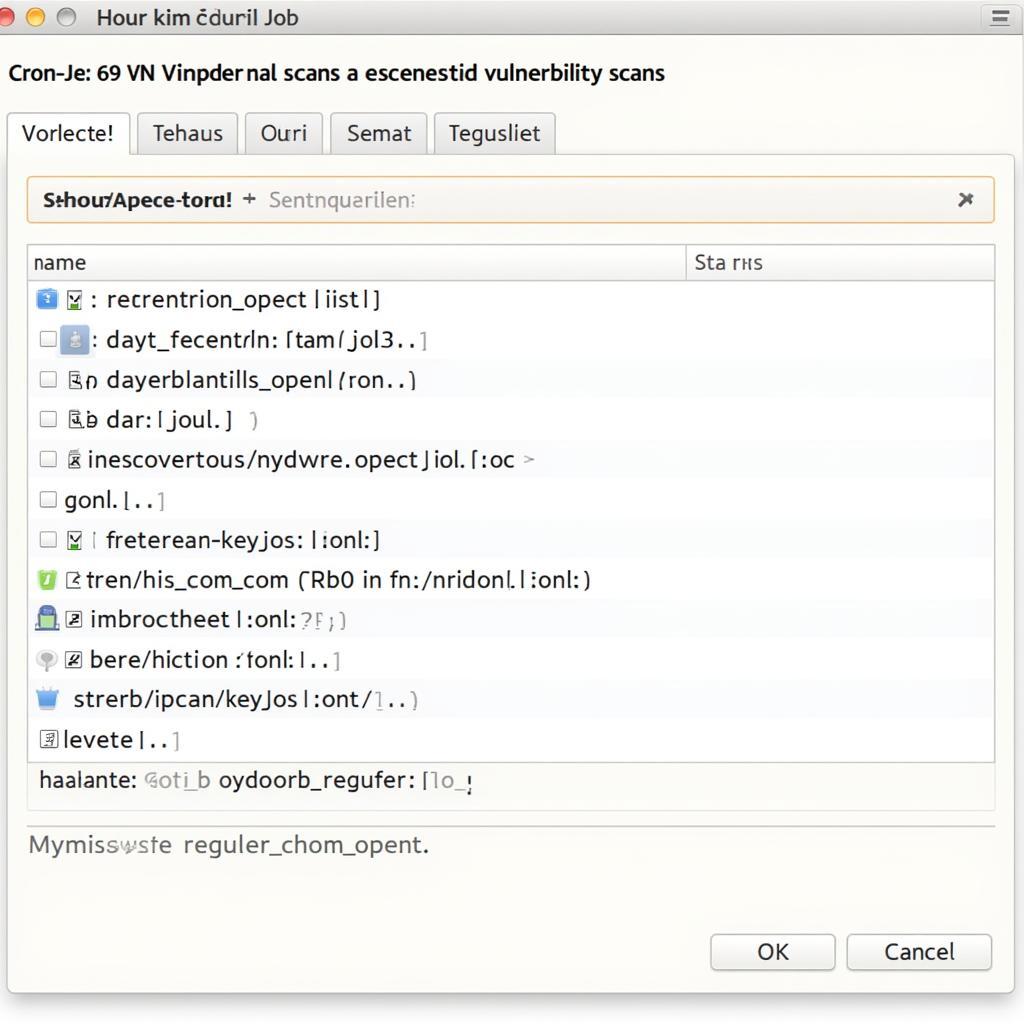Securing your Ubuntu system is paramount in today’s digital landscape. Understanding and effectively utilizing Ubuntu Default Vulnerability Scanning Tools is crucial for maintaining a robust and secure environment. These tools empower you to proactively identify and address potential security risks before they can be exploited.
Why Vulnerability Scanning is Essential on Ubuntu
Regular vulnerability scanning is like a routine health checkup for your system. It helps detect weaknesses in your software, configurations, and dependencies that could be exploited by malicious actors. Ignoring these vulnerabilities can lead to data breaches, system compromises, and significant financial losses.
Unveiling Ubuntu’s Default Vulnerability Scanning Arsenal: apt-get, dpkg, and more
Ubuntu offers a powerful suite of built-in tools for vulnerability scanning. These tools, often readily available or easily installable, provide a robust foundation for security assessments. Let’s explore some of the most effective options.
Leveraging apt-get for Security Updates
The apt-get command-line utility is not just for installing and upgrading software; it’s also a valuable security tool. Regularly running sudo apt-get update and sudo apt-get upgrade ensures your system has the latest security patches, closing known vulnerabilities.
 Ubuntu apt-get update command for security updates
Ubuntu apt-get update command for security updates
Understanding the Role of dpkg
The dpkg utility manages software packages at a lower level. While not a dedicated vulnerability scanner, it can be used to identify installed packages and their versions, providing valuable information for assessing potential vulnerabilities.
Introducing debsums for File Integrity Checks
The debsums tool verifies the integrity of installed packages by comparing file checksums. This helps detect unauthorized modifications, indicating potential compromises or malware infections.
 Ubuntu debsums command for file integrity checks
Ubuntu debsums command for file integrity checks
Integrating Lynis for Comprehensive Auditing
While not a default tool, Lynis is a powerful open-source security auditing tool that integrates seamlessly with Ubuntu. It performs in-depth checks across various system aspects, including configuration, security hardening, and vulnerability detection.
Simplifying Vulnerability Scanning with Lynis
Lynis automates many security checks, providing detailed reports and actionable recommendations for enhancing your system’s security posture. It’s an invaluable tool for both beginners and experienced system administrators.
Practical Tips for Effective Vulnerability Scanning
- Regularity is Key: Schedule automated vulnerability scans to ensure consistent monitoring and prompt detection of new threats.
- Prioritize Updates: Address identified vulnerabilities promptly by applying relevant security patches and updates.
- Stay Informed: Keep abreast of the latest security advisories and vulnerabilities affecting Ubuntu and its software ecosystem.
 Setting up a scheduled vulnerability scan on Ubuntu
Setting up a scheduled vulnerability scan on Ubuntu
Conclusion
Effectively utilizing Ubuntu default vulnerability scanning tools, like apt-get and dpkg, combined with powerful tools like Lynis, is essential for maintaining a secure system. By embracing a proactive approach to vulnerability management, you can significantly reduce your risk and protect your valuable data. For expert advice and assistance with automotive diagnostic tools and software, connect with ScanToolUS at +1 (641) 206-8880 or visit our office at 1615 S Laramie Ave, Cicero, IL 60804, USA.
FAQ
- How often should I run vulnerability scans on my Ubuntu system? It’s recommended to run vulnerability scans at least weekly, or more frequently if you manage sensitive data or operate in a high-risk environment.
- What should I do after a vulnerability scan reveals potential issues? Prioritize addressing critical vulnerabilities by applying necessary patches and updates. Consult security advisories and documentation for specific remediation steps.
- Are Ubuntu default vulnerability scanning tools sufficient for comprehensive security? While default tools provide a good foundation, consider supplementing them with more advanced tools like
Lynisfor a more thorough assessment. - How can I automate vulnerability scanning on Ubuntu? You can use scheduling tools like
cronto automate vulnerability scans and ensure regular checks. - Where can I find more information about Ubuntu security best practices? The official Ubuntu documentation and various online security resources provide valuable information on securing your Ubuntu system.
- What are some common vulnerabilities found on Ubuntu systems? Outdated software, misconfigured services, and weak passwords are common vulnerabilities that can be identified through regular scanning.
- How can I get professional help with Ubuntu security? Contacting security experts or managed service providers specializing in Ubuntu can provide tailored support for your specific needs.


